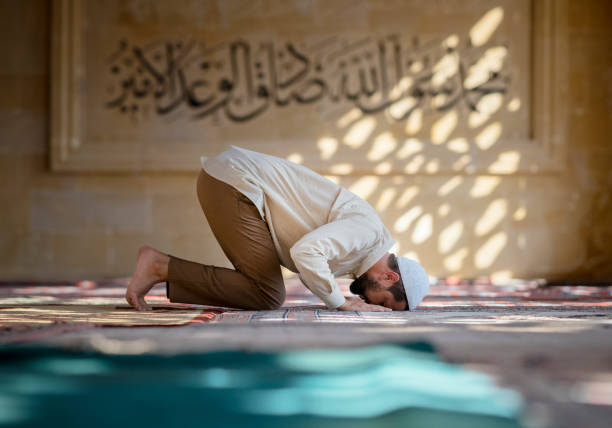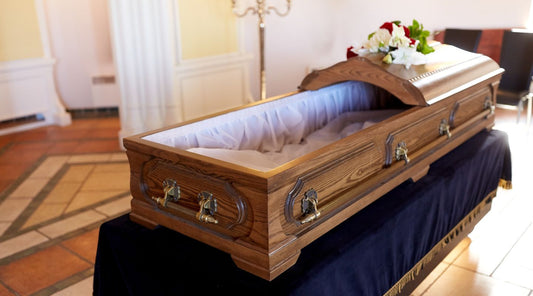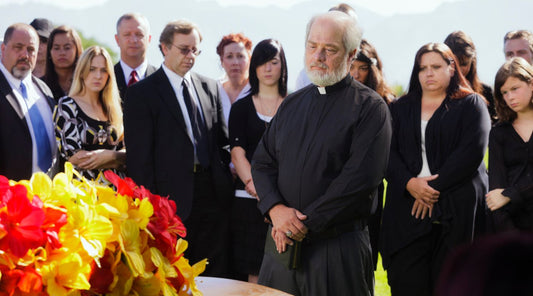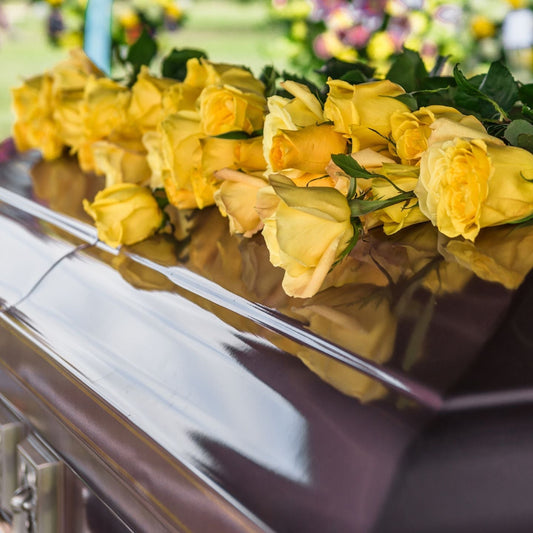
Muslim funeral. Traditions And All To Know About Muslim Funerals.
Death and funerals have different views in the Islamic faith. For Muslims, death is considered a transition from worldly life and body to another state of existence called the afterlife.
They believe the afterlife holds different places, and where you go in it largely depends on how you have lived on earth, specifically relating to the Islamic way of life.
Islamic Faith And Funeral Prayers:

People who follow the Islamic faith believe that if they have lived their lives on earth according to the ways of the faith, they will go to paradise when they pass away. Muslims believe that if this weren't your way of life, you would be separated from the world's best when you die.
Hence, it can be said that Muslim funerals not only focus on the comfort and support for the ones who are grieving but also as a way to worship and praise their Allah (God) and pray to him, asking for mercy for the ones who have passed away.

What Is An Islamic Funeral?

In the Islamic community, a funeral service is treated like a community event where the occasion is much more spiritual than typical funerals. Everyone who comes to the funeral is expected to be part of the group prayers, where everyone prays to Allah for mercy upon the deceased.
How Long Is a Muslim Funeral? - Muslims within the community come together to say a collective prayer while respecting the final wishes of the dead loved one.
Most Islamic funerals last anywhere from 30 to 60 minutes. All Islamic funerals are targeted towards helping the mourners cope with the grief of losing someone, as it is with most funerals. It is also a way to help them find hope at a difficult time that their loved ones will have an ideal afterlife after their lives on earth.
What Does The Process Of a Muslin Funeral Look Like?

Before Death:
For a Muslim, death is treated as a spiritual experience. When the death of a person is seen as imminent, the entire family and the closest friend circle all gather around to experience it together. They go through the "death struggle," in which everyone close to the dying person comes together to give them courage and help them endure the agony that death brings.
During this period, they chant the word "Shahada," which means "Allah is the only God," as a last attempt for the person to accept their god and have a peaceful afterlife. They keep chanting the word to have the dying person chant it at the exact time of his death.

Right After Death:
When a Muslim person passes away, they close the deceased's eyes and mouth, cover the body with a clean sheet and position the body so that the head of the deceased is facing Mecca. Everyone gathered around asks God or Allah on behalf of the deceased to forgive the deceased's sins.
Preparing the body: An essential part of a Muslim funeral service and burial preparation has a clean body. If the deceased is married, the spouse or loved one will do the cleaning, or a family member of the same sex will perform this duty and cleanse the body at least 3 times.
If the body seems unclean even after washing it three times, they clean it as much as necessary. The only requirement is that the number of times the body is cleansed should be in odd numbers.

The Cleaning Process: This process also follows a few strict rules, especially about the order in which the body is cleansed. The process starts from the upper right side of the body to the left and follows through the upper right and low left sides. If the deceased is a woman, her hair is washed and braided into three.

Putting The Body In a Shroud: The shrouding process is done with only white sheets and three pieces of clean white sheets. After stacking all three on top of each other, they place the body on top.
The hands are then positioned so the left-hand rests on the chest while the right hand is placed on top. The sheets underneath the body are brought up one by one to cover the body from the right first and then the left side.

This is done until the entire body is covered in white sheets. They then tie ropes around the body- one on top of the head, one or two in the middle of the body, and one at the end of the feet.
During The Funeral:

Body Placement: The deceased's body is placed in front of Iman (Islamic priest). Men and women attend the funeral, but typically, they are made to sit separately. Men are usually seated at the front while women take the back seats.

Prayer: In the absence of an Iman, the eldest male in the deceased's family takes his place and stands at the front of the room. He will face his body towards Mecca, and the body will be placed right in front of him, with his back facing the people at the funeral. From this position, the "allahu akbar" funeral prayers are said.

Carrying The Body To The Muslim Burial Ground: After the prayers have been said, the male in the family carries the dead Muslims into the Islamic burial ground or the Muslim cemetery. This funeral procession silently takes place without anyone talking, singing, or praying out loud.
After The Islamic Burial:

After the body has been laid to rest, the immediate family and friends of the deceased go through a 40-day mourning period where they do not accept any flowers from outsiders, even when sent to their homes, as a sign of homage to the deceased.
Islamic Funeral Rites And Traditions

Since all religions look at death through different eyes, it is a good idea to know what to expect at any funeral, which is not typical of the religious funeral arrangements you are used to.
Here are a few Islamic religious codes you should expect if you are attending Muslim funeral services:

It Is Always a Silent Funeral: A Muslim funeral service is a silent affair. No one talks to each other as a sign of respect for the dead. Even when saying the funeral prayer, except for a few words, most of it is said silently. Additionally, there is no music at a Muslim funeral service. You won't hear singing, talking, or any kind of sound except mourning, like crying and sobbing at a Muslim funeral.

Quick Burial: The most important thing to remember about a Muslim funeral is that the burial process is carried out as soon as possible. This is one of the fundamental rites in the Islamic belief system. Unlike Christian or other religious funerals where there might be wake, viewing, and visitation events, there are none in Islamic funeral customs.
No Open Casket: Typical funerals might have some family members request an open casket to allow close friends and family members to have a last look. However, in Islamic customs, it is unlikely that there will be an open casket at a Muslim funeral.

Location Of The Funeral: Islamic funerals typically take place in a prayer room, outside of a mosque, or in a courtyard where there is enough room for the family and friends of the deceased to gather and say their prayers. Everyone attending the Muslim funeral and the dead body is positioned in such a way that they all face Mecca, the birthplace of the prophet Muhammad.
Sitting Arrangement: At an Islamic funeral service, you will find that everyone attending the funeral must sit in designated areas. Typically, it consists of three rows- one for the mean, one for children, and one for women. The men are typically seated at the front, while the Muslim women sit at the back. In a more traditional setup, only men attend Islamic funerals.
Throwing Dirt Into Muslim Graves: Once the body reaches the burial location, everyone present must take three handfuls of dirt and throw it into the burial site.
No Cremation: The Muslim community believes in the resurrection on the final judgment day. They believe this to be a physical resurrection; hence, their faith prohibits Cremation.

No Autopsies: The traditional Islamic religion also doesn't allow their dead to go through autopsies. Muslims believe this will only delay the burial process, desecrating the deceased's body. This includes embalming of the body as well unless it is a requirement set by the authorities in the places where they reside.
No Flowers: When a Muslim dies, it is more of a spiritual occasion than your typical funeral services. So you will not find flowers filling up the Islamic cemetery. Many Muslims commonly don't allow sending flowers and gifts to the family when the person dies. Muslim communities, however, are encouraged to send them food during the mourning period.

Islamic Funeral Etiquette
-
Mourners can express their grief, but loud wailing and crying are not well accepted or permitted at a Muslim funeral.
-
No pictures or recordings will be taken during the funeral prayer service.
-
After the prayer service, the entire community gathers at the deceased's home if it is according to the family's wishes and expresses their grief. This is considered the post funeral reception.
-
In the 40-day mourning period, members of the Muslim communities may bring food to the family during the first three days.

-
Generally, all Muslims wear white to a funeral as it is a color they believe to be associated with wholesomeness and humility.
-
Everyone is expected to follow proper etiquette and wear modest clothing at the funeral home.
Frequently Asked Questions
How long does a Muslim funeral last?
The main part of the funeral, where you say the prayers, is typically brief. Unlike typical funerals, there's no service with eulogies and sharing. Hence, the actual service lasts up to an hour maximum.
After this, the family and near ones of the deceased gather at the family's home and mourn together. The mourning period lasts about 40 days traditionally, but these days the mourning period is reduced for more convenience.
What should I wear to a Muslim funeral?
Men and women are expected to wear clothes covering all parts of their bodies except for the face and hands. Typically, they wear white, but it is also appropriate to wear dark and drab colors. As for women, their attire should cover their ankles and blouses that cover their necks and should be full sleeves. It's also considered appropriate not to wear too much makeup.
What should non Muslims wear to a Muslim funeral?
There are no strict rules about what a non Muslim should wear to a Muslim funeral, but like with any other funeral, it is a good idea to wear dark colors to show respect to the dead. The key is to be modest and dress in somber colors that don't attract attention to yourself.
Is Cremation accepted in the Islam faith?
Cremation is a practice that is strictly forbidden in the Islamic faith. It is forbidden for a Muslim even to witness a cremation. However, there is one condition, if the deceased person dies of a contagious disease, they could be allowed a cremation funeral.

Do Muslim burials happen at sea?
Typically, sea burials are not permitted according to the faith. However, if the situation is unavoidable, it can be allowed. It is typical for all Muslims to be buried in the ground.


